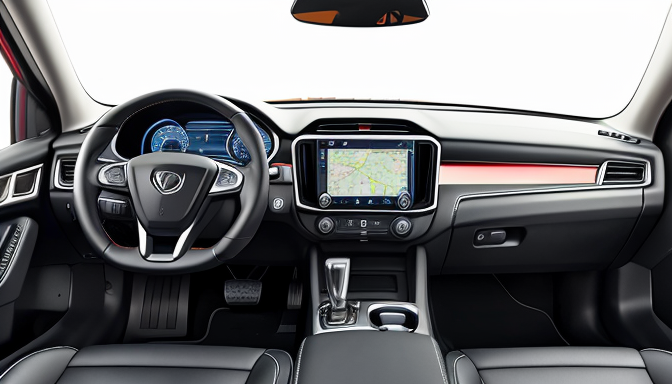Maintaining your vehicle is not just about keeping it looking good; it’s about ensuring its longevity and optimal performance. Think of your car as a loyal companion that needs care and attention to keep running smoothly. Just like you wouldn’t ignore a friend in need, don’t overlook your car’s maintenance! By learning essential car maintenance tips, troubleshooting guides, and DIY repair tutorials, you can save money and avoid those dreaded trips to the mechanic.
Regular maintenance is crucial for your car’s health. Tasks like oil changes, tire rotations, and brake inspections should be on your calendar. Imagine driving a car that hasn’t had an oil change in ages; it’s like running a marathon without hydration! Keeping up with these tasks can prevent major issues down the line. For example, did you know that a simple tire rotation can extend the life of your tires significantly? It’s a small effort for a big payoff!
Many drivers overlook simple maintenance tasks, leading to costly repairs. Ignoring warning lights is like ignoring a fire alarm in your home—it’s a recipe for disaster! Regularly checking your fluids, such as coolant and brake fluid, can save you from unexpected breakdowns. Make it a habit to glance at your dashboard before every drive. A little vigilance goes a long way in ensuring your car’s reliability.
Understanding Routine Maintenance
Regular maintenance is crucial for your car’s health. Think of it as a check-up for your vehicle, just like you would visit a doctor for your own health. By performing essential tasks, you ensure your car runs smoothly and efficiently, saving you from costly repairs down the line. Here are some key maintenance tasks you should never overlook:
- Oil Changes: This is the lifeblood of your engine. Regular oil changes keep your engine parts lubricated and functioning optimally. Aim for every 3,000 to 5,000 miles, depending on your vehicle.
- Tire Rotations: Tires wear unevenly, and rotating them helps extend their lifespan. Typically, you should rotate your tires every 6,000 to 8,000 miles.
- Brake Inspections: Your brakes are your car’s most critical safety feature. Regular inspections can prevent brake failure and ensure your safety on the road.
But routine maintenance isn’t just about following a checklist; it’s about understanding your vehicle’s needs. For instance, if you notice a change in how your car drives or unusual sounds, it’s time to investigate further. Ignoring these signs can lead to bigger issues down the road. Think of your car as a relationship; the more you nurture it, the better it performs!
In summary, by staying proactive with these maintenance tasks, you can significantly enhance your car’s performance and longevity. Not only will you enjoy a smoother ride, but you’ll also save money in the long run. So, roll up your sleeves and get started on that car care journey!

Common Mistakes to Avoid
When it comes to car maintenance, many drivers unknowingly fall into a trap of overlooking essential tasks. Think of your vehicle as a complex machine that requires regular attention, much like a garden that needs watering and weeding. One of the most significant mistakes is ignoring warning lights on your dashboard. These lights are not just there for decoration; they are your car’s way of communicating that something is off. Ignoring them can lead to expensive repairs down the line.
Another common pitfall is neglecting fluid checks. Your car relies on various fluids—engine oil, coolant, brake fluid, and transmission fluid—to function smoothly. Failing to check these regularly can result in serious issues. For instance, if your engine oil is low, it can cause your engine to overheat, leading to catastrophic damage. It’s like trying to run a marathon without water; you simply won’t make it!
Additionally, many drivers skip routine tasks like tire rotations and brake inspections. These are crucial for maintaining your vehicle’s performance and safety. To help you stay on track, consider creating a simple maintenance schedule. Here’s a quick overview:
| Maintenance Task | Frequency |
|---|---|
| Oil Change | Every 5,000 miles |
| Tire Rotation | Every 6,000 miles |
| Brake Inspection | Every 10,000 miles |
By avoiding these common mistakes, you can enhance your car’s lifespan and maintain its reliability. Remember, a little attention today can save you a lot of trouble tomorrow!
Frequently Asked Questions
- How often should I change my oil?
It’s generally recommended to change your oil every 5,000 to 7,500 miles, but always check your owner’s manual for specific guidelines. Think of it as giving your car a refreshing drink to keep it running smoothly!
- What are the signs that I need new brakes?
If you hear squeaking or grinding noises when you brake, or if your car pulls to one side, it’s time to get those brakes checked. Ignoring these signs is like ignoring a fire alarm—it’s not going to end well!
- Why is tire rotation important?
Tire rotation helps ensure even wear on your tires, extending their lifespan and improving your vehicle’s handling. It’s like giving your tires a little vacation to different corners of your car!
- What should I do if a warning light comes on?
Don’t panic! First, check your owner’s manual to understand what the light means. If it’s serious, get your car checked by a professional ASAP. Think of it as your car’s way of sending an SOS!
- How can I improve my car’s fuel efficiency?
Regular maintenance, like keeping your tires inflated and changing air filters, can boost your fuel efficiency. It’s like giving your car a little pep talk to help it perform better!